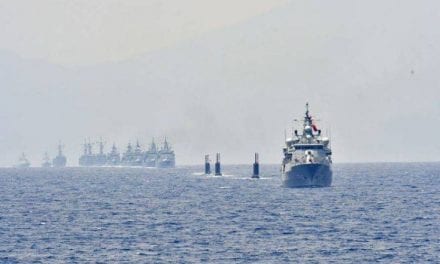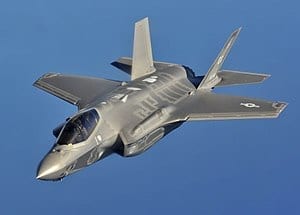BY SETH J. FRANTZMAN, The Hill
He survived the Arab Spring. He survived the rise and fall of ISIS. But a corruption scandal could spell the end for Israel Prime Minister Benjamin Netanyahu’s term, and the Middle East is watching closely. Egypt’s Al-Masry Al-Youm published the story on its homepage, as did Al-Jarida in Kuwait. Other regional media are expected to follow suit.
Netanyahu came to power in 2009 on the eve of President Obama’s speech to the Muslim world in Cairo, and two years before the Arab Springswept away long-serving Arab leaders. By the summer of 2009, Hosni Mubarak was gone from power in Egypt, as was Tunisia’s Zine El Abidine Ben Ali and Libya’s Muammar Gaddafi. As the region slipped into chaotic demonstration, Israel appeared to be one of the few stable countries in the Middle East.
For Netanyahu, this was a political wind; his cynical view that saw numerous threats to Israel from jihadists and the rise of Iran was born out. In fact, he was proved correct to a great degree: as Netanyahu’s term continued, more leaders fell. Ali Abdullah Saleh lost his seat as the inaugural president of Yemen, and then lost his life. King Abdullah of Saudi Arabia died in 2015, 10 years after ascending to the throne. The Saudi Crown Prince Mohammed Bin Salman rose to power in 2017 and has shaken up the kingdom. In Qatar, Sheikh Hamad bin Khalifa Al Thani also resigned in favor of his son, Emir Tamim bin Hamad Al Thani.
Netanyahu’s time in power has outlasted Mahmoud Ahmadinejad of Iran and Nouri al-Maliki of Iraq. The former was a true enemy of Israel and a foil for Netanyahu, who delivered his famous “red line” speech at the United Nations to confront Ahmadinejad’s threats. Maliki helped drive Iraqi Sunnis into the hands of ISIS and alienated the Kurdistan Region, which weakened Iraq and the region. Similarly, the civil war in Syria invited the deeper involvement of Hezbollah and Iran.
Netanyahu and those around him often have hinted at Israel’s rising connections in the region. They have presented Israel as not only the island of stability but the “canary in the coal mine” against Iran’s aggressive expansion. During the Obama years, when Washington sought out the Iran nuclear deal, it appeared Jerusalem stood alone against changing winds. But quietly in Egypt and Riyadh, as well as the Gulf, states began to see in Israel an ally.
Netanyahu called those relationships “unimaginable” just years before, and he was clearly proud of reaching out quietly throughout the region. Many in the region, like Netanyahu, patiently awaited the end of the Obama administration and generally welcomed President Trump’s election. Except for Iran and its allies, most countries anticipated an ally in the White House.
If Netanyahu were to leave office now, it would present a problem in the region. New challenges have arisen with the defeat of ISIS and the winding down of the Syrian civil war. Iran has cemented its hegemony to some extent. Russia is a powerful force, signing agreements of military cooperation in Lebanon and Qatar, and seeking to sell equipment to Egypt and Saudi Arabia. Russia has developed better relations with Turkey in the past year, and is the major power in Syria.
Egypt is facing elections but, in general, the region is trending toward stability — at least temporarily. However, a political crisis in Israel could cause problems. Iran might want to test Jerusalem, as it has been by constructing bases in Syria. Hezbollah threatened Israel after an Israeli F-16 was shot down by Syrian air defense on Feb. 10. The Palestinians are threatening to eject the United States from the peace process, and U.S. threats to cut United Nations Relief and Works Agency funding have caused other countries to step in.
Netanyahu’s long term in power has caused the public to wonder who else could run the country and stunted the growth of challengers. These opposition figures certainly do not have the name recognition or respect that Netanyahu has carved out. Even those who dislike Israel tend to see in Netanyahu a strength that Israelis do not always see. Many Israeli experts characterize the prime minister as a paranoid micromanager who cannot make a decision. But the Israeli response to the Iranian drone in its airspace, with raids that destroyed half of Syria’s air defenses, showed once again the kind of response that Jerusalem is known for.
The stories about Israel’s air strikes in Syria or in Sinai tend to bear out the idea of a powerful and stable Israel. Trouble in the prime minister’s office could erode that. With Netanyahu having held the foreign minister portfolio from 2012 to 2013 and then again since 2015, Israel’s policy and power has been concentrated in his hands. If indeed he has become an anchor of the region, that may be changing.
*Seth Frantzman spent three years in Iraq and other countries in the region researching the war on terror and Islamic State. He is a research associate at the Rubin Center for Research in International Affairs at the IDC Herzliya.



















